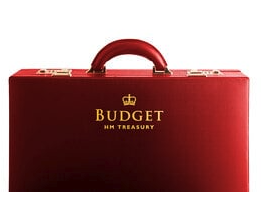Motorists and businesses have made it clear what they would like to see announced as part of the Chancellor’s Budget tomorrow (October 27).
Close Brothers Motor Finance research shows that one in three (38%) would like some form of assistance from the Government to make electric vehicles (EV) more affordable.
Almost a third (35%) would like to see space in the Chancellor’s Budget for more EV charging points to be installed across the country, while 31% would like to see Government funding or grants to help with the outlay for installing charging points at homes.
A further 29% said they would like to see funding for all new build homes to have EVcharging points installed as standard.
Seán Kemple, managing director of Close Brothers Motor Finance, said: “While hybrids and alternative fuel vehicles are getting more popular, there are significant concerns that must be addressed to encourage more motorists to make the switch.
“We are still languishing in the tens of thousands of much needed electric car charging points – we need to get to two million to meet the ambitious 2030 goals.
“We’re less than a decade away before the ban, so time really is of the essence. What’s more, with the global semiconductor shortage continuing to squeeze supply chains and limit production of new AFVs, we need to see greater support from the Government to aid sector recovery during an especially challenging time.”
The British Vehicle Rental and Leasing Association (BVRLA), the British Retail Consortium (BRC), the Finance and Leasing Association (FLA), Green Alliance, Logistics UK, Renewable Energy Association, and Transport and Environment have co-signed a letter to the Chancellor outlining the need to introduce targeted plans to help boost electric van sales in particular.
They say that the lack of effective regulation or support for the electric van market means clear barriers remain that prevent fleet operators from making the transition.
BVRLA chief executive Gerry Keaney said: “Electric vans are the future, but for too long, the Government has focussed on one-size-fits-all solutions for EVs.
“Zero emission vans are not yet affordable, accessible or feasible for many fleets and use cases. The sector needs a well-financed strategy with additional targeted fiscal support if we are to meet the 2030 phase out target.
“The measures laid out so far in the Transport Decarbonisation Plan and Net Zero Strategy do not go far enough.”
National Living Wage could rise to £9.50 an hour
The Government is widely expected to announce an increase in the National Living Wage from £8.91 per hour to £9.50 for all those aged 23 and over as of April 1, 2022.
Minimum pay rates for people aged 21-22 are also expected to rise from £8.36 to £9.18 an hour. The Apprentice Rate is due to see an increase from £4.30 to £4.81 an hour.
Approximately half of the two million jobs paid at this level work in the cleaning, facilities, retail and maintenance industries.
Dealer groups should expect an increase in wage costs either through paying higher wages directly for certain roles, or potentially with costs being passed on by suppliers.
…”You cannot will the ends and ignore the means to turbocharge the economy…” Tony Danker, head of the CBI
The Confederation of British Industry (CBI) has warned the Government against new business tax rises in this week’s Budget (and Comprehensive Spending Review) or face dampening the economic recovery and undermining its broader strategy.
Tony Danker, CBI director-general, said: “If the UK is to break out of a decade-plus cycle of anaemic growth and zero productivity, then the Government has to get serious about what it will actually take to deliver that.
“There is a fundamental inconsistency where the Government wants to unlock business investment, but its tax policies do the opposite.
“You cannot will the ends and ignore the means to turbocharge the economy. Every economist and business leader knows it.”
Danker said the Government must choose if it is going for growth, or going back to “tax and spend”.
He added that while business and Government is united in its ambitions for the UK, it will take more working hand-in-glove to actually achieve them.
CBI key asks of Government include:
- End the repeated increase of business taxes that are stunting investment
- Stimulate longer-term business investment building on the super-deduction by committing to maintain more generous capital allowances beyond 2023
- Fundamental reform of the business rates burden, better reflecting falling property values and removing disincentives preventing green improvements.
- Require all regulators to prioritise investment, net zero and innovation as part of their core remits.
- Focus on delivering a flexible apprenticeship system, turning the apprenticeship levy into a lifelong learning levy.
- Improve people’s life chances by giving them the skills they need to succeed through individual training accounts for unemployed individuals and those with the biggest retraining needs.
- Designate energy efficiency and heat decarbonisation as an infrastructure priority by providing a comprehensive long-term package of funding for the ‘able to pay’ market.
- Develop and invest in the decarbonisation pathways required to reach net zero across transport.
- Deliver on the Plan For Growth and Innovation Strategy, including front-loading the commitment to invest £22bn direct domestic R&D funding by 2024-25.
- Enable business to help level-up across the whole of the UK by commissioning the CBI in the Levelling-up White Paper to write the playbook for successful economic clusters.



















Login to comment
Comments
No comments have been made yet.